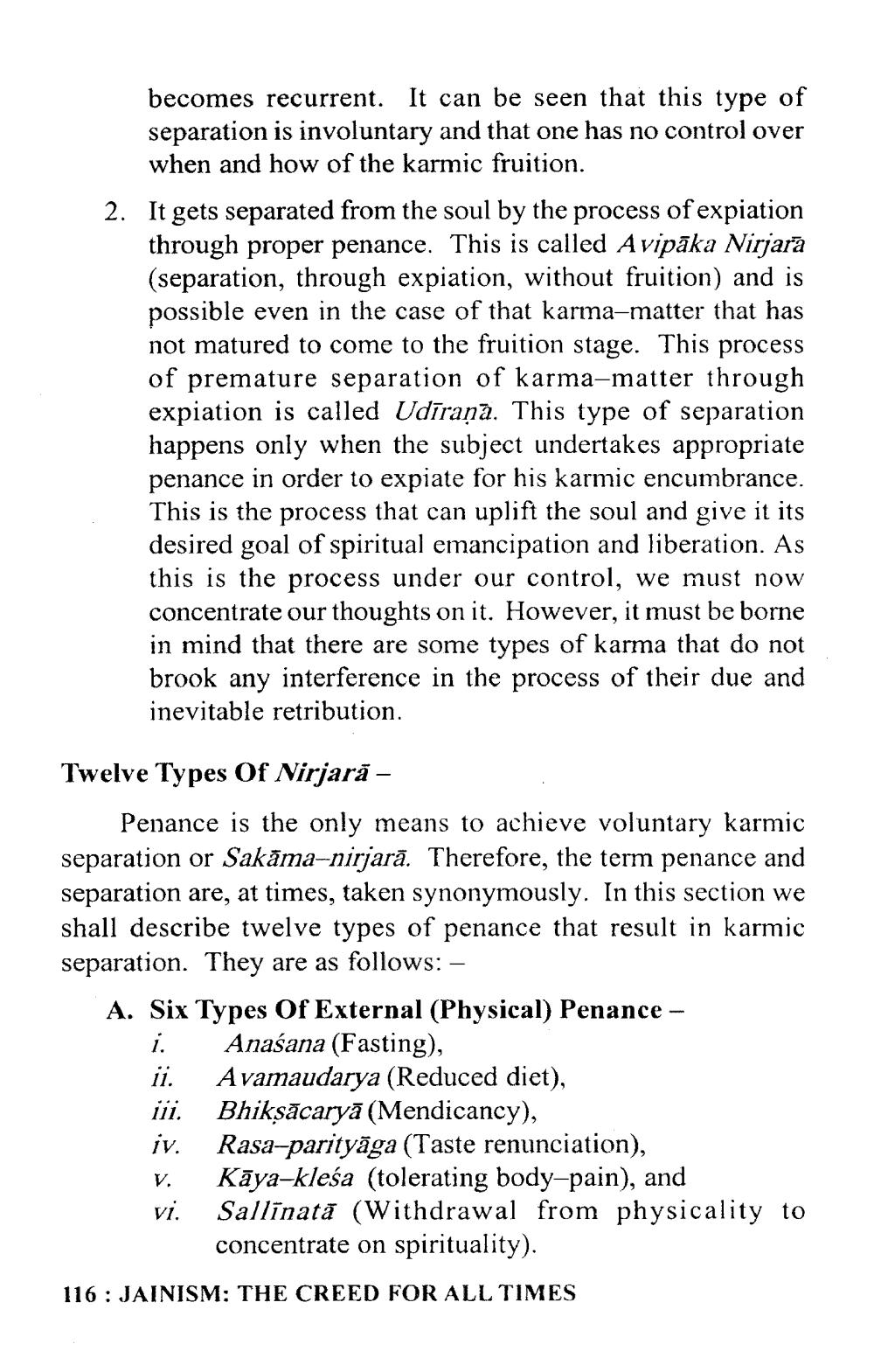________________
becomes recurrent. It can be seen that this type of separation is involuntary and that one has no control over when and how of the karmic fruition.
2. It gets separated from the soul by the process of expiation through proper penance. This is called Avipāka Nirjara (separation, through expiation, without fruition) and is possible even in the case of that karma-matter that has not matured to come to the fruition stage. This process of premature separation of karma-matter through expiation is called Udīraṇā. This type of separation happens only when the subject undertakes appropriate penance in order to expiate for his karmic encumbrance. This is the process that can uplift the soul and give it its desired goal of spiritual emancipation and liberation. As this is the process under our control, we must now concentrate our thoughts on it. However, it must be borne in mind that there are some types of karma that do not brook any interference in the process of their due and inevitable retribution.
Twelve Types Of Nirjarā –
Penance is the only means to achieve voluntary karmic separation or Sakāma-nirjarā. Therefore, the term penance and separation are, at times, taken synonymously. In this section we shall describe twelve types of penance that result in karmic separation. They are as follows: -
A. Six Types Of External (Physical) Penance Anasana (Fasting),
i.
ii.
Avamaudarya (Reduced diet), iii. Bhikṣācaryā (Mendicancy),
iv.
Rasa-parityaga (Taste renunciation), Kāya-kleśa (tolerating body-pain), and
V.
vi. Sallīnatā (Withdrawal from physicality to concentrate on spirituality).
116: JAINISM: THE CREED FOR ALL TIMES




